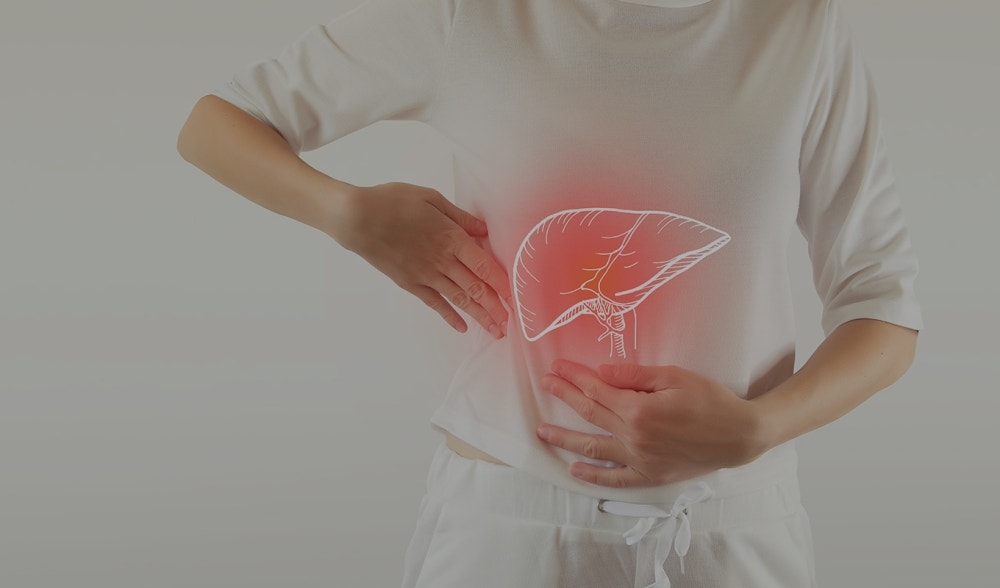After the holiday season, in which we often indulge in excessive diets and extra vices, such as that of excessive use of alcoholic beverages, we must realize that we subject our bodies to extra stress from which we must "detoxify ".

In addition to the excesses of food addictions, we must know that, in the modern world, we are all exposed daily to a mixture of chemical compounds, as well as many foods and nutrients that can overload the natural processes that the body uses for the elimination of such toxic substances.
This overload of our "purification" system can lead, in the long run, to the occurrence of health problems, dysfunctions of our endocrine and immune systems. Certain nutrients, supplements and activities can help the liver alleviate this 'toxic load', allowing the body to function more efficiently and improve health levels.

The liver is the primary filtering system of the human body, converting toxins into waste products, purifying the blood and metabolizing nutrients and drugs to supply the body with some of its most important Protein. With the liver being such a fundamental part of the human body's overall system, it is vital to keep it healthy and limit overwork.
Changes in our diet can certainly help us in this task. Among the foods that can definitely support us are cruciferous vegetables, berries, soy, garlic and spices - these foods naturally support optimal liver function. Knowing these foods and adding them to a regular daily rotation can help the liver do its job at its best. As an added benefit, eating foods with natural anti-inflammatory benefits can reduce the risk of fatty liver disease, a disease that basically means that the liver has taken in too much fat.

Furthermore, among the wide range of phytonutrients currently studied for this purpose, turmeric, quercetin and resveratrol have been reported to stimulate the expression of endogenous detoxification enzymes and can neutralize harmful environmental agents.
Another of the foods best known for its role in detoxifying the liver is certainly milk thistle, known for its liver cleansing action and for its antioxidant and anti-inflammatory properties. It can help reduce liver inflammation. As previously mentioned, another fundamental supplement is turmeric for its proven activity of decreasing the main pro-inflammatory molecules that contribute to the development or worsening of certain diseases, including those related to the liver.
Due to turmeric's low bioavailability, it is best taken in supplement form, standardized for 95% curcuminoids.

If action is not taken promptly, it could happen that over time and with continued damage, fatty liver disease can develop into cirrhosis, a condition that produces permanent scarring and prevents liver regeneration. It must be remembered that a healthy diet, in addition to the illustrated benefits for the liver, is also a diet that will naturally promote weight loss or weight maintenance, improved energy levels, better sleep and a more youthful appearance.
Foods with natural anti-inflammatory properties include green leafy vegetables, beans, grains, and mushrooms. These plant-based foods do direct photosynthesis rich in water, oxygen and nutrients that cells depend on to maintain all functions.
The exception would be GMO crops of wheat, corn, soy, alfalfa, canola, and items heavily sprayed with the dangerous Roundup pesticide (e.g., dairy, eggs, poultry, red meat, pork, fish, sweet potatoes, potatoes, beets , sugar cane, coffee, nuts) as they are extremely harmful to the liver at any level of consumption.
The more effective the digestive system is at eliminating toxins, the less work will go to the liver.
A great support for the digestive system is given by probiotics. These tiny beneficial bacteria quickly get to work shifting the balance in the gut from harmful bacteria to healthy flora. Among the most fashionable strategies studied by research in recent years is that of intermittent fasting, an extremely ancient practice that is considered to be another excellent way to start the cleansing and detoxification of the body. You don't need to fast for days to get the benefits. Per starters, you can test overnight fasting by eating your last meal in the evening (say 7pm) and then not eating until morning (7am).
References
Hodges RE, Minich DM. Modulation of metabolic detox pathways using foods and food-derived components: a scientific review with clinical application. J Nutr Metab. 2015; 2015: 760689. doi: 10.1155 / 2015/760689
Jackson SJ, Singletary KW, Murphy LL, Venema RC, Young AJ. Phytonutrients differently stimulate NAD (P) H: quinone oxidoreductase, inhibit proliferation and trigger mitotic catastrophe in hepa1c1c7 cells. J Med Food. 2016; 19 (1): 47-53. doi: 10.1089 / jmf.2015.0079


Comments
Write a comment about the article